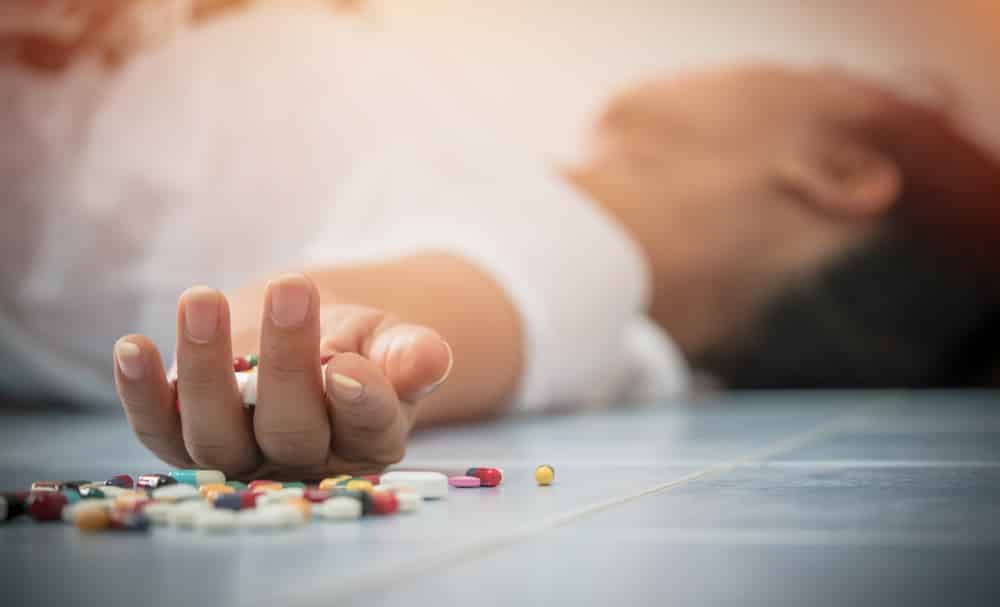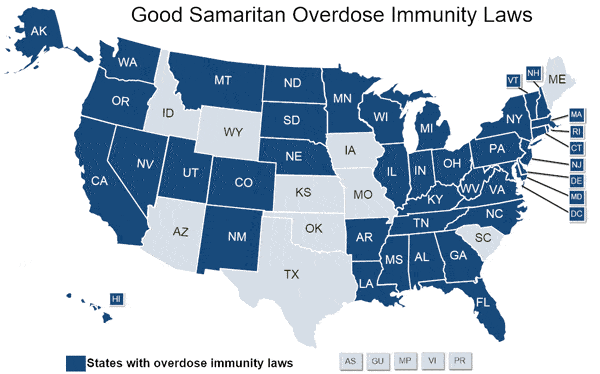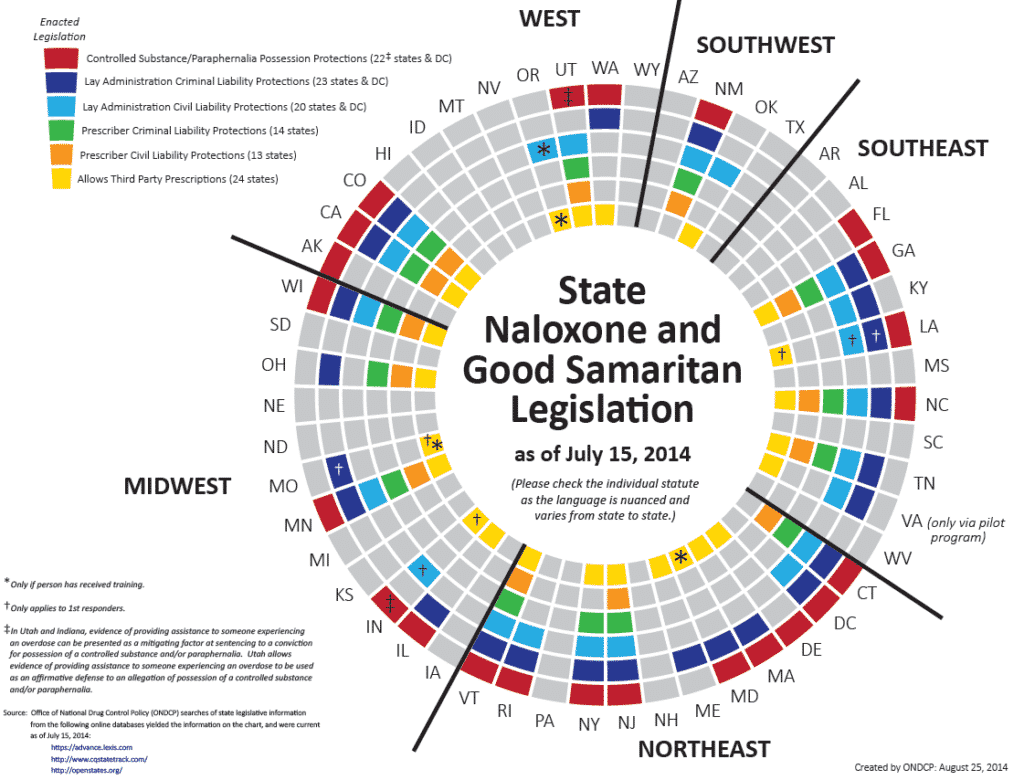Overdose Awareness Day: What it is & How to Help
Each year, Overdose Awareness Day takes place on August 31st to honor those who have died from a drug overdose and raise awareness of overdoses. Nearly 850,000 people have died since 1999 from a drug overdose, with overdoses accelerating in more recent years due to the opioid crisis.1 The main culprit of these overdose deaths is the opioid drug class or, specifically, synthetic opioids (other than methadone).
And every single overdose death is preventable.

Overdose Awareness Day presents the public with an opportunity to both acknowledge the grief felt by family and friends of those lost to drug overdoses, as well as help prevent the occurrence of overdoses in the future. On Overdose Awareness Day, we acknowledge the grief of family members and other loved ones who have lost loved ones to the disease of addiction, actively engage in overdose prevention, and strive to raise awareness of substance abuse issues and the dangers of overdose.
At Hotel California by the Sea, we also offer life-saving treatment to those suffering from substance abuse issues and co-occurring mental health problems at each of our nationwide rehabilitation centers. Read on to learn more about Overdose Awareness Day, what it is, why it’s important, and how you can contribute to this cause.
Overdose Awareness Day Information
Overdose Awareness Day is an initiative of the Pennington Institute and takes place on August 31st every year. According to Overdose Awareness Day’s official website, “International Overdose Awareness Day is the world’s largest annual campaign to end overdose, remember without stigma those who have died and acknowledge the grief of the family and friends left behind. Time to Remember. Time to Act.”2
Raising Awareness: What is an Overdose?
A drug overdose occurs when a toxic amount of any ingested substance, from tylenol to opioids (or even alcohol), overwhelms the brain and body. Sometimes, during an opioid overdose, someone will be unresponsive to stimuli and may pass out and stop breathing. Sometimes, overdoses will cause a drug-related death. An overdose may happen as a result of ingesting too much of one – or many – drugs at one time.
At least in the case of opioid overdoses, survival depends on taking in an adequate amount of oxygen through breath, which is often obstructed or suppressed in the case of an overdose. Remember, not all drug overdoses are fatal, but all overdoses can have lasting damage, depending on what substances a person ingested, how much of these substances a person ingested, and that person’s particular body chemistry.
Symptoms of an Overdose
If someone is overdosing on any drug, their symptoms may include:3
- Slowed or stopped breathing
- Awake, but unable to talk
- Limp body
- Slow, erratic, or stopped pulse
- Gurgling, choking, or snoring sound while breathing
- Blue-gray lips and fingertips
- Not reacting to stimuli
Reach out to Hotel California by the Sea
We specialize in treating addiction and other co-occurring disorders, such as PTSD. Our Admissions specialists are available to walk you through the best options for treating your addiction.
What to Do if You See Someone Having an Overdose
If you believe that someone may be experiencing an overdose, call 911 immediately and turn the person on their side. Again, drug overdoses can be fatal.
You may also choose to:4
- Check the person’s current physical state. Are they awake? Are they breathing?
- Rub your knuckles on the person’s breast bone to see if they respond.
- If they respond, make sure that you keep them awake and breathing.
- Check to see if the person is carrying NARCAN (Naloxone), or has it in their vicinity. Check if anyone in your area has it and administer it.
- For injectable Naloxone: Draw up entire vial and inject the entirety of the vial into the person’s thigh muscle (must be muscle to work)
- For Nasal Naloxone: Stick the device all the way up one of the person’s nostrils, click the plunger, and ensure that the device is inserted fully.
- Sometimes it requires more than one dose of naloxone to revive a person who is experiencing an overdose. You are able to give a person multiple doses to revive them without it hurting them.
- Perform mouth to mouth rescue breathing. Once their breathing returns to normal, role them onto their left side in the recovery position.
- No matter what, stay with the person who is overdosing. If you have to leave, place the person on their left side.
- Do NOT put the person in a cold bath, inject them with salt water or stimulant drugs, induce vomiting, or ignore the issue.

Check Your Insurance Coverage for FREE
Find out if your insurance covers addiction treatment in minutes. We accept most insurance!
Drug Overdose Immunity & Good Samaritan Laws
To encourage people to call 911 when they believe someone around them may be suffering from an overdose, 40 states and Washington DC have enacted some type of a “Good Samaritan” or 911 drug immunity law. These laws generally provide some type of immunity from punishment for people who are calling to report an overdose but who are scared they might get in trouble. Immunity from punishment may involve protection from things including (but not limited to) immunity from charge, arrest, prosecution for certain controlled substances, paraphernalia offenses, and (sometimes) parole offenses. The child 👶

How to Get Involved and Raise Awareness On Overdoses
International Overdose Awareness Day is a way for community members to come together and raise awareness on substance use disorders and overdoses. No matter how you may prefer to contribute to causes, there are plenty of ways for you and your loved ones to get involved in the cause and help! For example, you can:
- Find an event on the National Overdose Awareness Day website to participate in with friends and family.
- Host an event on your own that offers educational or other types of resources that spread awareness on overdoses and substance use disorders.
- Post a tribute to a lost loved one on the National Overdose Awareness Day website.
- Use the hashtag #OverdoseAware or #EndOverdose on your social media photos and posts to help build momentum for August 31st and spread awareness about addiction and overdose.
- Donate to overdose awareness day or another addiction/substance abuse foundation you would like to support.
- Educate yourself, your friends, and your family members on the disease of addiction, the dangers of overdose, Good Samaritan laws, how to help someone with addiction, how to help someone who is overdosing, and more.
- Donate to increase Naloxone access across states.

How to Get Help for a Substance Use Disorder
If you or a loved one are suffering from substance abuse issues, reach out to a free and professional drug abuse hotline or medical professional now. If you believe a loved one might be overdosing, call 911 immediately.
Hotel California by the Sea offers a free 24/7 phone number that you or a loved one can call if you are suffering from drug and alcohol abuse and are interested in receiving treatment. Our admissions staff will be able to help you understand your treatment options, point you towards free community resources for those struggling with addiction, and more. We can also help you understand whether or not your insurance may cover the full or partial cost of your stay in inpatient treatment, or the full or partial cost of your stay in outpatient treatment.
Again, every drug overdose death can be prevented through early intervention. The earlier someone gets treatment, the more likely they are to find tragedies such as overdose deaths avoidable. Treatment and recovery are not easy, but they certainly are worth it.
Resources for Those Who are Struggling
There are various free resources for those suffering from addiction, those who love someone who is suffering from addiction, and people in recovery. There are also plenty of resources for information on overdoses.
If someone is overdosing right now, these resources include:
- 911. Call 911 immediately if someone is overdosing.
- Read Overdose Basics: Responding to an Overdose
Otherwise, these resources may include:
- The Substance Abuse and Mental Health Services Administration.
- Drug Abuse Hotline by NIDA.
- Peer support groups such as Alcoholics Anonymous, Narcotics Anonymous, and Codependents Anonymous.
- Cognitive behavioral therapy and other forms of therapy.
If you are seeking recovery from drugs or alcohol and co-occurring mental health conditions, join an enthusiastic recovery community and recover from substance use disorders at Hotel California by the Sea. Call 800-762-6717.
To honor someone you love who lost their lives to an overdose, comment on our article to post a tribute or find other ways to reduce the stigma around substance abuse and fight the opioid epidemic. Together, we can raise awareness of overdose and reduce stigmas. Together, we can save lives.
Sources:
- https://www.cdc.gov/nchs/nvss/vsrr/drug-overdose-data.htm
- https://www.overdoseday.com/
- https://harmreduction.org/issues/overdose-prevention/overview/overdose-basics/recognizing-opioid-overdose/
- https://harmreduction.org/issues/overdose-prevention/overview/overdose-basics/responding-to-opioid-overdose/
